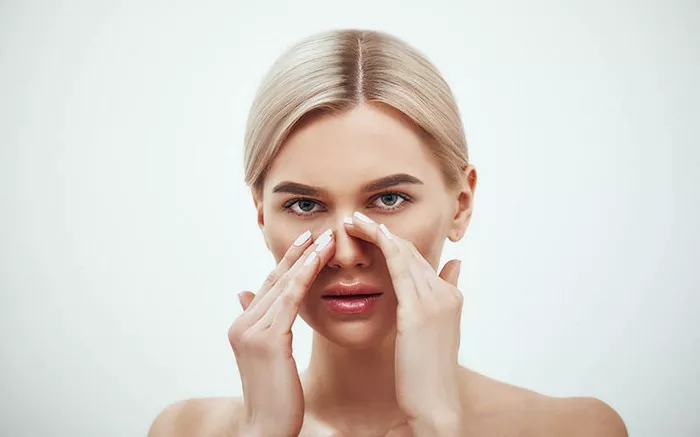Rhinoplasty is a surgical procedure that involves altering the structure and shape of the nose. It is a major surgery that requires adequate preparation and recovery to ensure successful results. One of the key factors in the recovery process is proper nutrition. In this article, we will discuss what you can eat after rhinoplasty surgery to help facilitate your healing process.
Why Nutrition Matters After Rhinoplasty
Following your rhinoplasty surgery, your body will require increased amounts of energy and nutrients to facilitate the healing process. Good nutrition is essential for reducing inflammation, promoting wound healing, and minimizing the risk of infection. Eating the right foods can also help to reduce swelling and bruising, which are common side effects of the surgery.
What to Eat After Rhinoplasty
Here are some of the best foods to eat after rhinoplasty surgery:
-
Protein-Rich Foods
Protein is essential for wound healing and tissue repair. Eating foods that are rich in protein can help to speed up your recovery after surgery. Some good sources of protein include lean meats, poultry, fish, eggs, beans, lentils, and tofu.
-
Vitamin C-Rich Foods
Vitamin C is essential for collagen production, which is important for wound healing and tissue repair. Eating foods that are rich in vitamin C can help to reduce inflammation, speed up healing, and minimize the risk of infection. Some good sources of vitamin C include citrus fruits, strawberries, kiwi, mango, papaya, broccoli, cauliflower, and bell peppers.
-
Iron-Rich Foods
Iron is essential for the production of hemoglobin, which carries oxygen to the tissues. Eating foods that are rich in iron can help to prevent anemia and promote wound healing. Some good sources of iron include lean meats, poultry, fish, beans, lentils, tofu, spinach, and fortified cereals.
-
Foods Rich in Zinc
Zinc is essential for wound healing and tissue repair. Eating foods that are rich in zinc can help to promote healing and reduce the risk of infection. Some good sources of zinc include lean meats, poultry, fish, beans, lentils, tofu, nuts, and seeds.
-
Fiber-Rich Foods
Constipation is a common side effect of surgery and can be uncomfortable and painful. Eating foods that are rich in fiber can help to promote bowel regularity and prevent constipation. Some good sources of fiber include whole grains, fruits, vegetables, beans, and lentils.
-
Foods Rich in Omega-3 Fatty Acids
Omega-3 fatty acids are important for reducing inflammation and promoting healing. Eating foods that are rich in omega-3 fatty acids can help to reduce swelling and inflammation after surgery. Some good sources of omega-3 fatty acids include fatty fish (such as salmon, tuna, and sardines), walnuts, flaxseeds, and chia seeds.
-
Water
Drinking plenty of water is essential for maintaining hydration and promoting healing. Drinking at least eight glasses of water per day can help to flush out toxins, promote healthy skin, and prevent dehydration.
Foods to Avoid After Rhinoplasty
There are certain foods that you should avoid after rhinoplasty surgery. These include:
-
Spicy Foods
Spicy foods can irritate the nasal passages and increase inflammation, which can worsen swelling and pain.
-
Salty Foods
Salty foods can increase fluid retention and cause swelling, which can be uncomfortable and delay the healing process.
-
Alcohol
Alcohol can increase swelling, interfere with wound healing, and increase the risk of bleeding. It is best to avoid alcohol for at least two weeks after surgery.
-
Carbonated Beverages
Carbonated beverages can increase gas and cause bloating and discomfort.
-
Hard, Crunchy, or Chewy Foods
Foods that are hard, crunchy, or chewy can be difficult to chew and swallow after rhinoplasty surgery. These foods can also cause discomfort and delay the healing process.
-
Hot Foods
Hot foods can irritate the nasal passages and increase inflammation, which can worsen swelling and pain.
-
Foods High in Vitamin E
Vitamin E can increase the risk of bleeding and delay the healing process. It is best to avoid foods that are high in vitamin E, such as nuts and seeds, for at least two weeks after surgery.
Tips for Eating After Rhinoplasty
Here are some tips to help you eat after rhinoplasty surgery:
-
Eat Small, Frequent Meals
Eating small, frequent meals throughout the day can help to provide your body with the energy and nutrients it needs to heal. Eating smaller meals can also be easier on your digestive system and reduce the risk of nausea and vomiting.
-
Avoid Straws
Using a straw can create negative pressure in the mouth, which can cause bleeding and delay the healing process. It is best to avoid using a straw for at least two weeks after surgery.
-
Eat Soft, Easy-to-Chew Foods
Eating soft, easy-to-chew foods can be easier on your mouth and reduce the risk of discomfort. Some good options include soups, pureed fruits and vegetables, yogurt, oatmeal, and scrambled eggs.
-
Chew Slowly and Carefully
Chewing slowly and carefully can help to prevent discomfort and ensure that your food is properly digested.
-
Take Your Time
Eating slowly and taking your time can help to prevent nausea, vomiting, and discomfort. It can also help to ensure that you are getting the nutrients your body needs to heal.
-
Avoid Extreme Temperature Foods
Foods that are too hot or too cold can irritate the nasal passages and increase inflammation. It is best to avoid foods that are too hot or too cold until your doctor gives you the go-ahead.
Conclusion
Eating the right foods after rhinoplasty surgery can help to speed up the healing process, reduce swelling and bruising, and minimize the risk of infection. It is important to eat a balanced diet that includes protein, vitamin C, iron, zinc, fiber, and omega-3 fatty acids. Avoiding certain foods, such as spicy foods, salty foods, alcohol, and carbonated beverages, can also help to reduce discomfort and promote healing. By following these tips and eating a healthy, balanced diet, you can help to ensure a successful recovery after rhinoplasty surgery.

